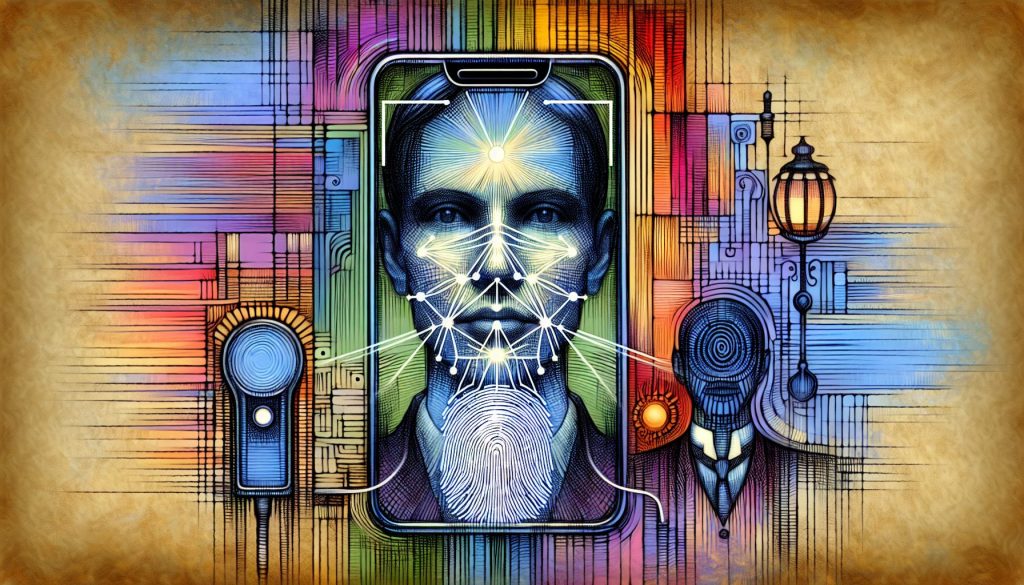End of an era for Touch ID on iPhones
Apple’s decision to retire the Touch ID feature for its flagship iPhones indicates a shift toward embracing Face ID as the primary biometric authentication method for new devices. With the production of Touch ID components permanently ceased, remaining units are designated for the third-generation iPhone SE. This marks the end of an era for the biometric authentication system that has been a staple on iPhones since the iPhone 5.
The transition from Touch ID to Face ID began with the iPhone X in 2017 and has since become available on the entire iPhone 12 lineup. Face ID is expected to be the standard for future iPhone releases, as Apple recognizes the advantages of leveraging advanced technologies to improve accuracy and security.
Touch ID remains on iPads
The discontinuation of Touch ID does not affect the iPad lineup, as the Touch ID system used in iPads differs from the one used in iPhones. Consequently, iPad users can continue to utilize Touch ID without concerns about potential limitations. However, iPhone users must be aware of this change and consider any impact on their device’s security and functionality.
Speculations on future iPad generations
While the cessation of Touch ID on iPhones could suggest an eventual phaseout for the ninth-gen iPad, this remains speculative. The consistent push from Apple to implement its advanced Face ID technology across multiple devices could, nonetheless, indicate a trend towards future iPad generations adopting Face ID and abandoning Touch ID altogether.
Touch ID on MacBook and iMac keyboard
No signs currently suggest that Apple intends to modify the Touch ID features on devices such as the MacBook Air, MacBook Pro, or iMac keyboard. However, future advancements in biometric identification technology could be incorporated into these devices later on. Apple may choose to refine or expand the Touch ID system to ensure a consistent and secure user experience across its product range.
Upcoming iPhone SE and Face ID adoption
The move away from Touch ID supports the notion that the next iPhone SE will adopt Face ID, making it the first Apple smartphone lineup to rely solely on facial recognition technology for authentication. This transition enhances the device’s security features and unifies the user experience across Apple’s smartphone offerings. Furthermore, Face ID adoption in the iPhone SE model showcases Apple’s commitment to a seamless and effortless authentication process for both security-conscious and convenience-oriented users.
User preferences and future developments
With Face ID gaining prominence, Touch ID’s presence on the iPhone seems to be dwindling. However, some users still appreciate the reliable nature of Touch ID, particularly during the current times when face masks can interfere with facial recognition technology. It remains uncertain whether Apple will continue to develop Touch ID technology alongside Face ID or completely phase it out in future devices.
Under-display biometric sensors
Speculations suggest that Touch ID could reemerge as an under-the-display component by 2026, allowing for seamless integration and an enhanced user experience. Manufacturers are expected to invest in researching and developing this technology, aiming for it to become a standard feature across multiple devices.
Meanwhile, under-display Face ID is also said to be in development within a similar timeframe. Incorporating this technology will enable a more seamless and sleek design, eliminating the need for a separate notch or cut-out in the display. These developments underscore continuous advancements in biometric smartphone features, paving the way for more innovative and secure user experiences.
First Reported on: forbes.com
Frequently Asked Questions
Why is Apple retiring Touch ID on its flagship iPhones?
Apple’s decision to retire Touch ID on its flagship iPhones marks a shift toward embracing Face ID as the primary biometric authentication method for new devices. This is due to the several advantages Face ID offers in terms of accuracy and security.
Will Touch ID still be available on iPads?
Yes, the discontinuation of Touch ID on iPhones does not affect the iPad lineup. Touch ID will continue to be available on iPads, providing users with a familiar and secure authentication method.
Are there any plans to discontinue Touch ID on MacBook and iMac keyboards?
Currently, there are no signs that Apple intends to modify the Touch ID features on devices such as the MacBook Air, MacBook Pro, or iMac keyboard. However, future advancements in biometric identification technology could be incorporated into these devices later on.
Will the next iPhone SE adopt Face ID?
The move away from Touch ID supports the notion that the next iPhone SE will adopt Face ID, making it the first Apple smartphone lineup to rely solely on facial recognition technology for authentication. This will enhance the device’s security features and unify the user experience across Apple’s smartphone offerings.
Will Apple continue to develop Touch ID technology?
It remains uncertain whether Apple will continue to develop Touch ID technology alongside Face ID or completely phase it out in future devices. However, some users still appreciate the reliable nature of Touch ID, and there is speculation that Touch ID could reemerge as an under-the-display component in the future.
What are the future developments for under-display biometric sensors?
Speculations suggest that both under-display Touch ID and Face ID will be in development within a similar timeframe. These technologies aim to provide a more seamless and sleek design, enhancing user experience and security on future devices.





























